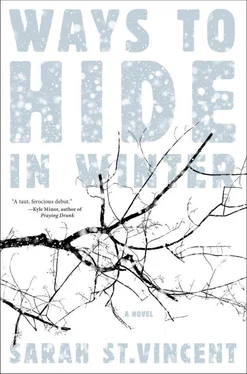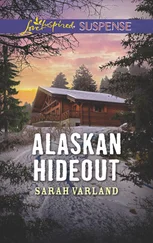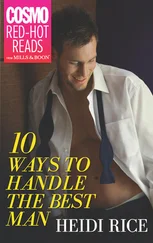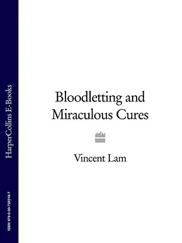He left the sentence unfinished. “And so,” he continued instead, “eventually, I agreed to work for them. I knew a lot of people. My clients, my friends. Students I had once taught, when I was a professor’s assistant. They trusted me, they told me everything.” He paused. “And I betrayed them. Every week, I went to that building, to the officers who had invited me. And I betrayed them.”
He rubbed his eyes with the heel of his hand, although he wasn’t crying. More than anything, he looked exhausted.
“There was one young woman, a painter. I remembered her because she used to wear these silk flowers in her hair. She was bold—she was never afraid of saying anything. I used to get so frustrated with her. I thought she was wrong about everything.” He seemed to draw in on himself, his shoulders curving. “They took her. I told myself she must have expected to be taken, since she’d said such bold things in front of other people. I…”
He trailed off.
I was too stunned to speak. We sat across from each other, the smoke from the kitchen wafting over us, the fan blades endlessly paddling the air.
“Let’s go,” I said finally, and he nodded. We slid out of the booth, walking to the register.
In the darkness of the car, I put my hands on the wheel. The stitching in the leather felt rough under my skin. I stared straight ahead.
“So what happened to them?” I asked. “Those people you…told the officers about?”
He seemed to speak with difficulty. “Well, they would have been questioned.”
“In prison?”
“Yes.” He’d taken a toothpick from a cup by the register when we’d walked out, but he wasn’t using it, just turning it over in his hands, pushing the points against his skin. “Some of them…I don’t know. I didn’t see them anymore. Maybe they were suspicious of me, or maybe they…”
He didn’t finish the sentence.
I started the car. As we drove, the vision came to me again, those happy faces bobbing in a candlelit circle in a café, listening to the stranger tell jokes and play his guitar. Slowly disappearing, one by one, like the Cheshire Cat, until even the smiles were gone, leaving just a trace of a glow lingering in the darkness.
I thought of the photographs from the prisons, distress rising in my throat.
“Eventually, I came here,” the stranger continued, as if he felt he had to finish the story now that he had started. “I—I knew the right people. To arrange things so I could leave.” He looked down at his palms. “When I first arrived, I was a student for a while—I went to a university in Virginia with my savings. I had a visa. Then it ran out.” He bent the toothpick until it broke. “I asked for asylum, but somehow, they knew what I had done.”
“Who did?” I forced myself to ask.
“The Americans. The judge. I was told I couldn’t get asylum. There’s a rule, you see. You can’t get it if you’ve done certain things. And they said I’d done one of them, because I’d worked for my government. Because I had,” he drew a breath, “informed on people.”
My stomach cramped. As he spoke, I was overcome by a vision of the day Amos had locked me in the garage. The smell of it, the darkness.
He’d left me in there for three days.
There was no food and no water.
“There’s another rule, however,” the stranger was saying, “that even if you can’t get asylum, you can’t be sent back to a place where you’re going to be—well, if certain things are going to happen to you. But the judge said, ‘You worked for your government. Why would they now hurt you?’” I could hear the disbelief in his voice, as if this exchange had just happened. “He didn’t understand how angry my government would be—will be—when they find out I talked about what I did. What they asked me to do. It makes them look bad.” He gave a short, humorless laugh. “Obviously.”
I saw myself calling out in the dark until my voice was gone, pounding and clawing at the doorknob until my hands were bloodied and my nails torn loose. Finally, I’d curled against the door, noiseless, so thirsty I was sure I would die.
There was a cold sweat on my palms, the back of my neck, as I listened to him.
“So you didn’t get asylum,” I said.
“No.”
“And you came up here. Or your friends brought you here.”
“Yes,” he said. “Eventually.”
Much of my screaming—more than I cared to remember—had been for my parents. I’d kept picturing them standing in the priest’s driveway. It was clear what had happened: the priest had called them, and then they had called Amos. They must have realized their mistake. They’d seen the way he’d charged into the rectory, the way he’d wrenched me out, taken me away. They would be worried. They would come to the house. They would hear me.
They didn’t.
They were, if anything, even more terrified of him than I was. But with far less reason.
“How many?” I asked as we turned off the highway.
“Pardon me?”
“How many people did you…turn in?”
He turned to me, surprised.
“I don’t know,” he said. A gust of wind blew through the tops of the trees as we passed through Centerville, pelting the car with water. “Maybe a hundred. Maybe more.”
A chill ran through me, a literal feeling of cold making my skin draw toward itself.
“A hundred,” I repeated.
“Maybe. I really don’t know. It was a long time before I could escape.”
“How long?”
For a moment, I thought he wouldn’t answer.
“Five years,” he said quietly.
Turning on my emergency lights, I pulled over onto the shoulder of the road. The tires crushed the leaves and gravel.
The stranger looked at me. I kept my eyes fixed ahead, on the point where the black asphalt merged with the darkness. The emergency lights clicked softly as they blinked.
Before me, I saw the pictures, the limbs that had been boiled, the burns from shocks, the vacant eyes. The hopelessness.
“Did they die?” I asked.
There was a long beat while he seemed to struggle to decide what to say.
“Some of them confessed,” he said. “I know that. People will say many things, when they’re…under pressure.” He shifted slightly under the shoulder strap. “And in my country, a confession is a serious thing. It’s hard to undo it, once you’ve said you did something. Almost impossible, really.”
I squeezed the wheel.
“So, they’re dead,” I said.
He didn’t answer. His face was turned away, his throat long and white.
I unfastened my seat belt and opened the door.
“Wait,” he said, but I didn’t listen.
Outside, in the cold, I walked behind the car and leaned against it. The taillights throbbed red, pulsing into the night. I gazed down the empty road into the darkness. A cold drizzle had begun to fall, sticking to my face. As I stood there, it soaked into my jeans.
In the hospital, Amos had explained that I’d gotten sick, I’d refused to go to a doctor, I was a bit unbalanced, I’d tried to move a heavy load of firewood and it had fallen onto my hands.
When it was time for me to be discharged, they’d sent me back. He’d stood at the front desk and taken my arm. And we’d walked out.
I wiped the drizzle from my face. Slowly, almost calmly, I bent double and threw up. When it was over, I straightened. Then I put my hands on my knees and did it again.
When the feeling of sickness finally passed, I slid down and sat on the crust of snow. The rain dripped into my eyes, and I let it, leaning my head against the warm fender.
It was a long time before I stood up and walked back to the open door on the driver’s side. The stranger was as I had left him, looking down at his hands. My seat was flecked with rain.
Читать дальше












